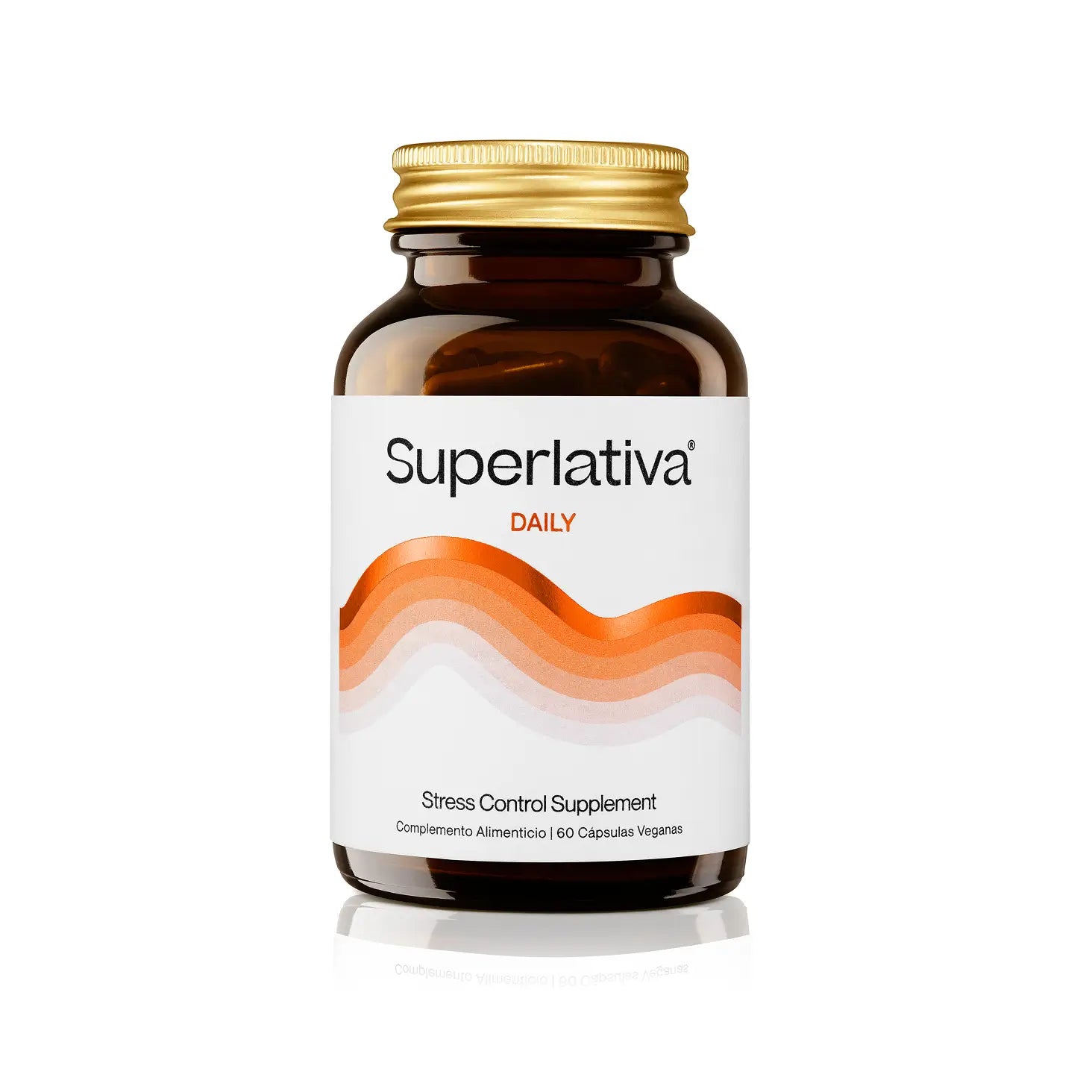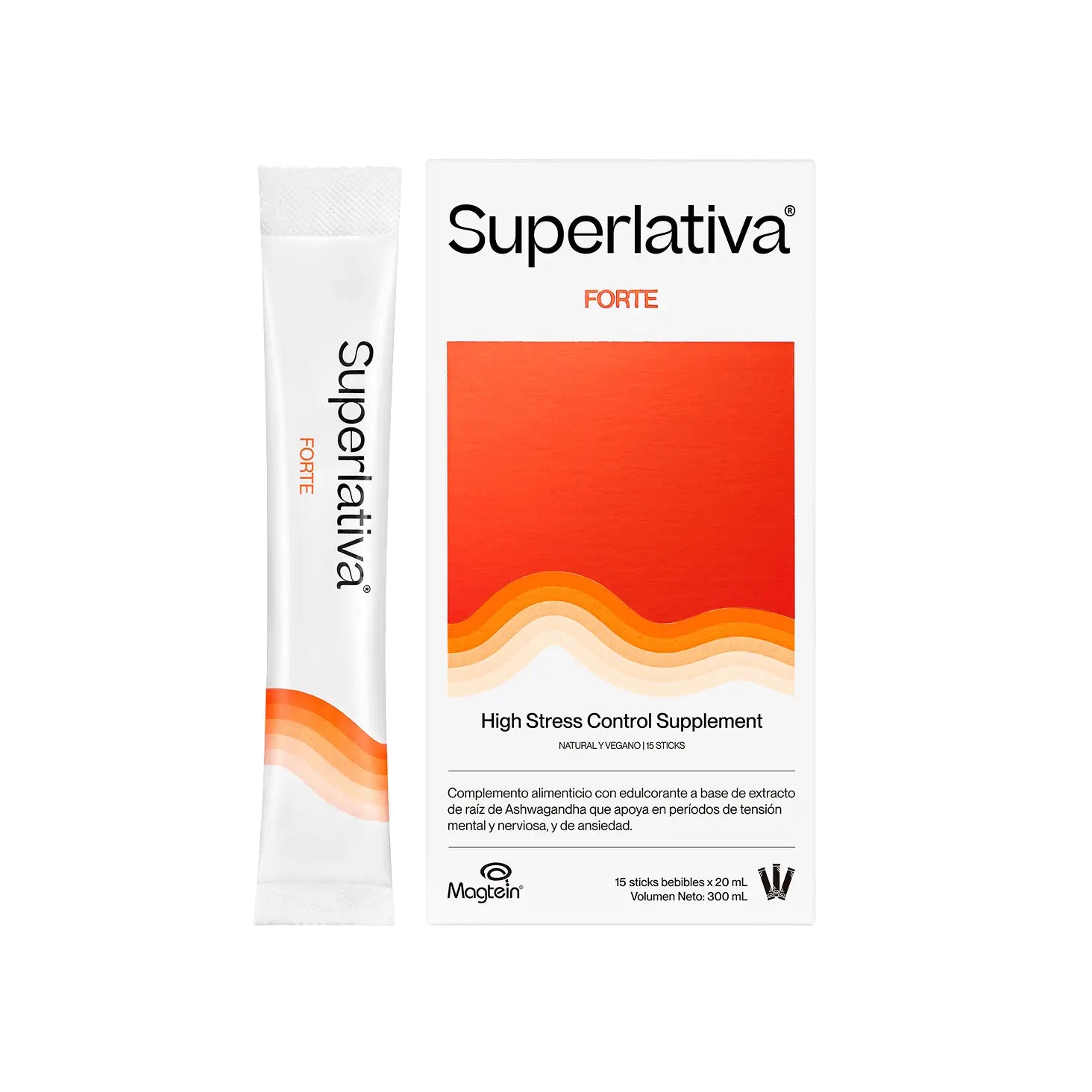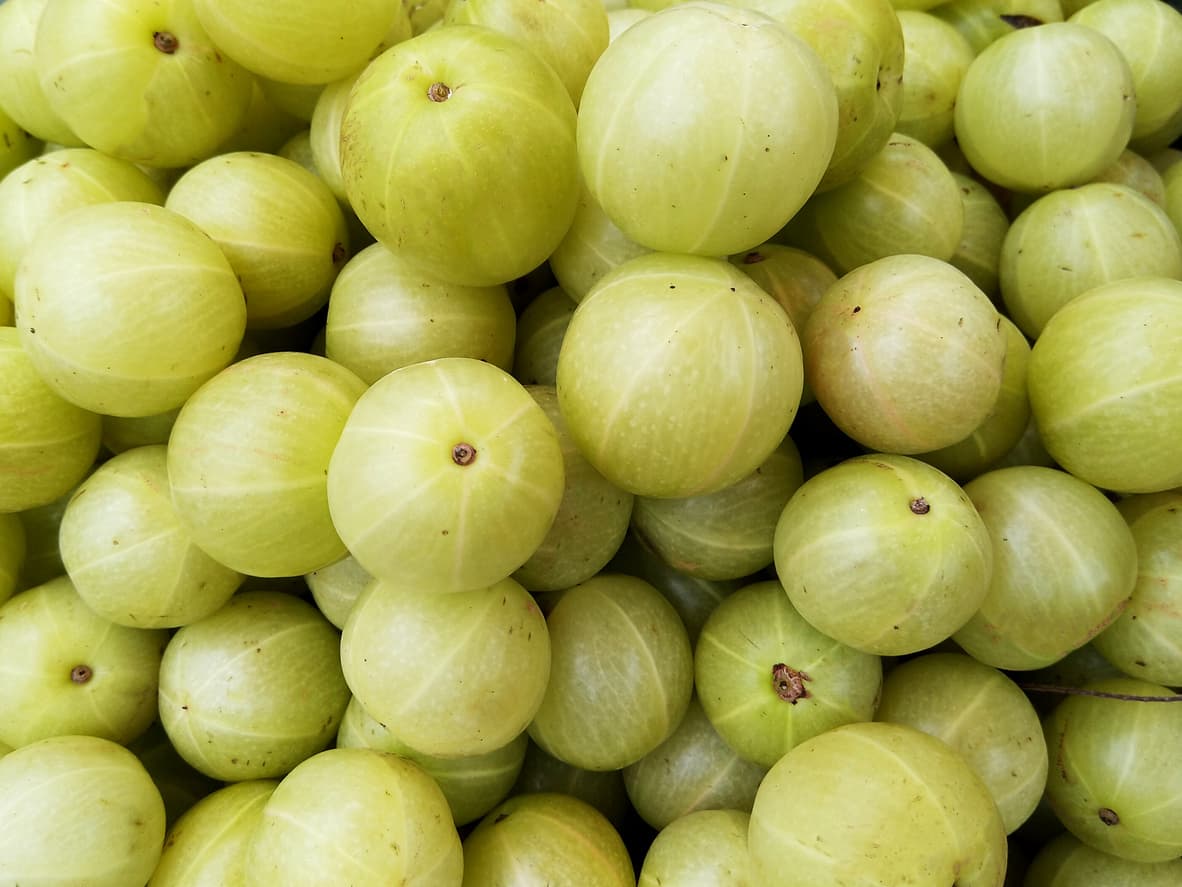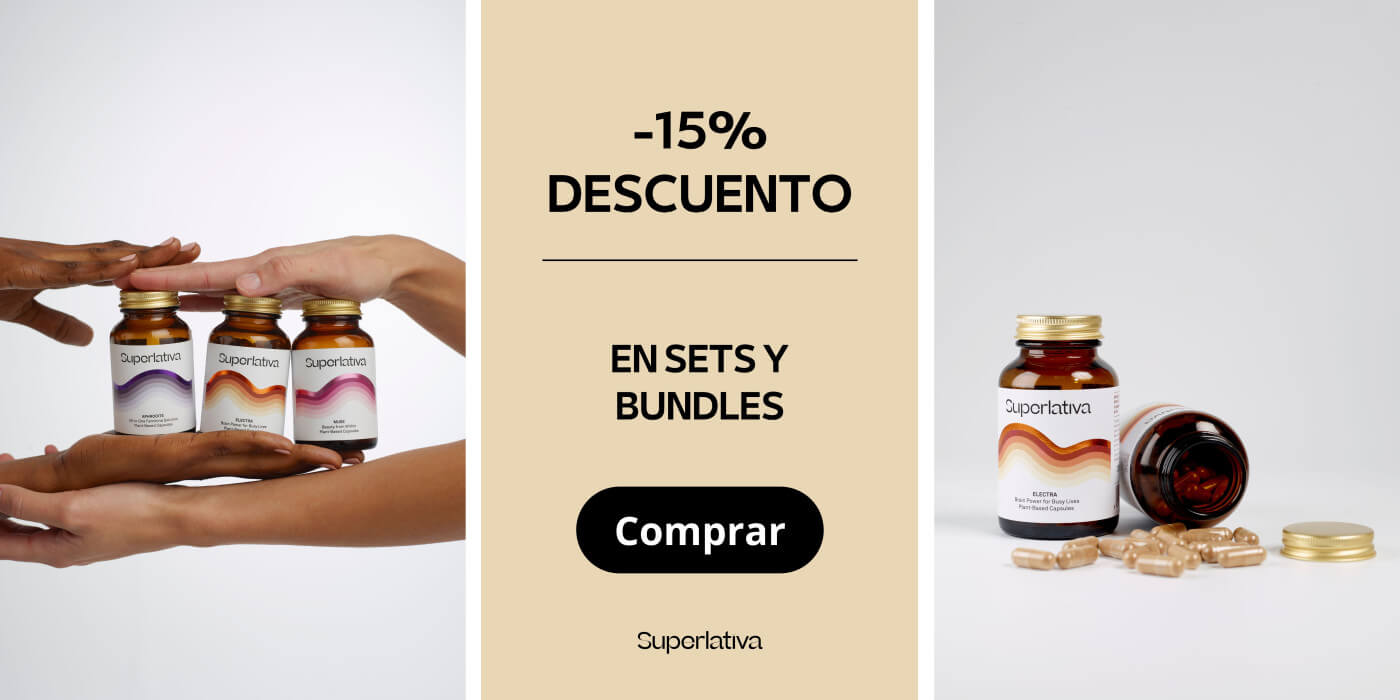Emblica officinalis , commonly known as Indian gooseberry or amla, is possibly the most important medicinal plant in the traditional Indian medicine system, Ayurveda (1).
What is Amla and what is it used for?
Amla is a plant with an acidic fruit native to the high mountains of India and Pakistan. The fruit is harvested during the humid autumns of the high-altitude forests of the Indian subcontinent. The potent benefits of this plant can be attributed to its high vitamin C content. It is considered a powerful rejuvenator, slowing aging and degenerative processes (2).
Amla Properties
It is known for being rich in vitamin C (the levels are higher than those of oranges, tangerines or lemons) , minerals and amino acids, and also contains a wide variety of phenolic compounds and tannins. Amla fruits are widely consumed raw, cooked or pickled, and are also the main components of many Ayurvedic preparations (3).
Properties of Amla (2):
- Antibacterial, antifungal and antiviral
- Antidiabetic and hypolipidemic
- Antioxidants
- Anti-inflammatory and immunomodulatory
- Adaptogenic
- Gastroprotective
Amla Benefits
Amla offers us many benefits that can be extremely useful in our daily lives:
- Strengthens the immune system. Amla can help improve the body's disease-fighting ability. It has antibacterial, antiviral, and antifungal properties, which help your body fight infections. It also helps eliminate toxins from the body.
- Controls cholesterol and triglycerides. It reduces the buildup of bad cholesterol in the body, prevents thickening of blood vessel walls, and increases levels of good cholesterol. All of this helps fight heart disease, primarily caused by high cholesterol.
- Slows down aging. Helps protect the skin from oxidative stress.
- Improves fertility and increases vitality. They are very nutritious. Traditionally used to relieve menstrual symptoms, they reduce bloating thanks to their anti-inflammatory and antioxidant properties.
- Improves skin health. Amla can help brighten skin tone. It exfoliates dead skin cells and makes skin soft and smooth. It also protects against UVA rays.
- Protects digestive health. Thanks to its gastroprotective properties, Amla helps keep the digestive system strong and clean, improving the body's ability to absorb nutrients from the food we eat.
Amla as Anti-aging
With aging, levels of naturally occurring antioxidants such as vitamins C and E decline, and overall antioxidant status decreases. One cause is the accumulation of free radicals over the years. This is why a higher intake of antioxidant compounds is needed during this stage of life (4).
Numerous studies have shown that oxidative stress causes structural and functional alterations in cellular, tissue and organ systems (5).
In a clinical study, Amla was confirmed to show significant improvement in endothelial function as well as a reduction in oxidative stress. Furthermore, the results suggest that Amla intake may increase plasma antioxidant potential and decrease oxidative stress, which may help promote oxidative homeostasis. Finally, the results of this human clinical study established that Amla has an acceptable sensory and safety profile while providing tremendous potential for healthy lifestyle management (5).
Amla reduces cholesterol
Do you know what it means to suffer from metabolic syndrome? It's defined as having two of the following abnormalities: hyperglycemia, hyperlipidemia, high blood pressure, low HDL cholesterol, or abdominal obesity, and it has become an epidemic in recent decades (5).
In one study, the effect of amla extract on lipid profiles and oxidative stress was investigated (6). 98 dyslipidemic patients participated in the study and were divided into Amla and placebo groups. Amla extract (500 mg) or a corresponding placebo capsule was administered twice daily for 12 weeks to the respective group of patients. The patients were followed up for 12 weeks and the efficacy of the study medication was assessed by analyzing the lipid profile (7). A very significant reduction in cholesterol, triglycerides and other lipid parameters was obtained. The results obtained were that amla extract may be beneficial in preventing cardiovascular diseases (6).
Amla protects you from sun exposure
Chronic skin exposure to solar ultraviolet (UV) radiation is a major environmental factor that has serious adverse effects on skin structure and function. Depending on the amount and form of UV radiation, as well as the skin type of the exposed individual, UV radiation can cause sunburn, immunosuppression, oxidative stress, or premature skin aging, a process known as photoaging (3).
Amla extract has been shown to exert a positive effect on improving skin dehydration and wrinkle formation, suggesting that it may effectively attenuate photoaging (3).
One study in particular selected Amla extract to evaluate its potential use in protecting skin from solar UV radiation. High-performance liquid chromatography was used to investigate the phytochemical components of Amla. The final results confirm that the use of Amla extract as an active ingredient protects the skin from UV radiation (8).
When to take Amla?
If you're looking to slow down aging while also achieving all the benefits mentioned above, definitely introduce Amla into your routine. Recommended for both women and men, at any stage of life.
How long does it take to take effect?
According to the aforementioned studies and thanks to the testimonials we received, we can confirm that after just two weeks, you can begin to enjoy the benefits of this wonderful plant.
Are there any contraindications?
There are no known interactions between this herb and prescription medications, but caution should be exercised when taking Amla along with blood-thinning medications.
Its safety during pregnancy and breastfeeding has not been established, so we recommend avoiding its use during this period.
How to take Amla?
- Amla fruits are perfectly edible, although they have a very sour and bitter taste. In India, it is customary to cook them in salt water and turmeric powder to make them more palatable.
- The dehydrated and powdered fruit.
- Dried leaves for infusion.
- Capsules and tablets.
Buy Amla
Our products Muse Antioxidant Supplement and Aphrodite Hormonal Balance They contain Amla extract in clinically proven and effective amounts to achieve all its benefits.
Muse contains a combination of four adaptogenic herbs and vitamins that work synergistically to enhance your beauty from within. It supports your body with the production and protection of collagen, which is naturally synthesized in the body. It protects against oxidative damage, improves skin elasticity and firmness, and supports the growth and strengthening of hair and nails. Specifically, Muse contains 440 mg of Amla extract per two capsules.
[dib_prod_4856135942178] 
Aphrodite is designed to boost your hormonal balance using natural ingredients. It contains a combination of five adaptogenic herbs, including Amla. Aphrodite contains 160mg of Amla per two capsules.
[dib_prod_4850218500130]
If you are interested in trying Aphrodite and/or Muse, we will give you a free 10% discount on the purchase of your first bottle. Apply the following discount code during checkout:
Amla10
I hope this article has helped you understand the benefits and uses of this fantastic plant and how it can play a role in improving women's and men's health.
We'd love to help you learn more about your well-being. If you have any questions or nutritional concerns, feel free to contact us at our dedicated email address:
consultas@superlativabotanicals.com
Thank you so much for taking care of yourselves. Consistency is the key to success. Listen to yourself, take care of yourself, and take action.
Bibliographic references
- Baliga, Manjeshwar Shrinath; Dsouza, Jason Jerome Amla (Emblica officinalis Gaertn), a wonder berry in the treatment and prevention of cancer, European Journal of Cancer Prevention: May 2011 - Volume 20 - Issue 3 - p 225-239.
- Majeed M, Majeed S, Mundkur L, Nagabhushanam K, Arumugam S, Beede K, et al. Standardized Emblica officinalis fruit extract inhibited the activities of α-amylase, α-glucosidase, and dipeptidyl peptidase-4 and displayed antioxidant potential. J Sci Food Agric. 2020;100 :509–516.
- Takashi Fujii, Takahiro Okuda, Naomi Yasui, Masanori Wakaizumi et al. Effects of amla extract and collagen peptide on UVB-induced photoaging in hairless mice. Journal of Functional Foods, 5 (1) (2013), pp. 451-459.
- Zorrilla, A. Aging and oxidative stress. Rev. Cubana Invest. Biomed. 2002; 21 (3): 178-85.
- Kapoor, M.P., Suzuki, K., Derek, T., Ozeki, M., Okubo, T. (2020). Clinical evaluation of Emblica Officinalis Gatertn (Amla) in healthy human subjects: Health benefits and safety results from a randomized, double-blind, crossover placebo-controlled study. Contemp. Clin. Trials Commun. 17, 100499. doi: 10.1016/j.conctc.2019.100499
- Yokozawa, T., Young Kim, H., Ju Kim, H., Okubo, T., Chu, D., & Raj Juneja, L. (2007). Amla (Emblica officinalis Gaertn.) Prevents dyslipidemia and oxidative stress in the aging process. British Journal of Nutrition, 97(6), 1187–1195.
- Kapoor MP, Suzuki K., Derek T., Ozeki M., Okubo T. (2020). Clinical evaluation of Emblica Officinalis Gatertn (Amla) in healthy human subjects: Health benefits and safety results from a randomized, double-blind, crossover placebo-controlled study. Contemp. Clin. Trials Commun. 17, 100499.
- Kunchana K, Jarisarapurin W, Chularojmontri L, Wattanapitayakul SK. Potential use of Amla ( Phyllanthus emblica L.) fruit extract to protect skin keratinocytes from inflammation and apoptosis after UVB irradiation. Antioxidants (Basel, Switzerland). 2021 Apr;10(5).







